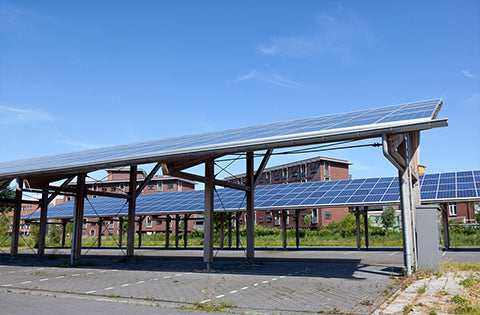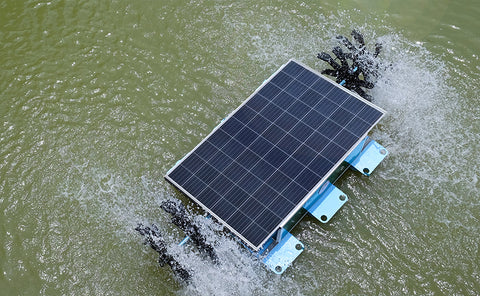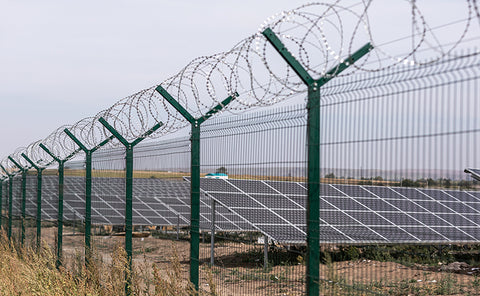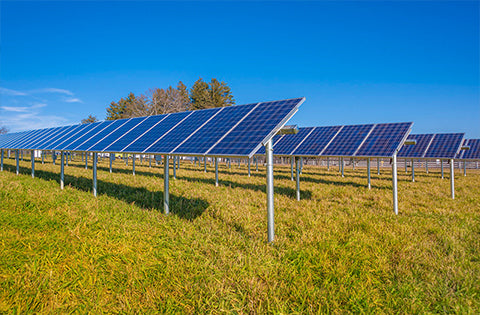With the rising costs of energy use, many businesses are seeking ways to reduce their electric bill. Fortunately, commercial solar systems are coming. Commercial solar panels are an excellent way for businesses to reduce – or even eliminate – their electric bill while utilizing clean energy. Solar power can take electric costs virtually out of the equation with a commercial solar installation, which is great for minimizing overhead and improving cash flow. Of course, there is the upfront cost of purchasing commercial solar panels.
But the total return on investment (ROI) on solar energy over time makes it a no-brainer. It’s well known that burning fossil fuels is harmful to our environment. Shifting to cleaner energy sources is becoming more critical. If your business is thinking about installing a commercial solar system as an alternative energy source, there are essential things to consider. Let’s check out some items to guide your decision.
How sustainable is a commercial solar system?
Switching to solar energy allows your business to reduce greenhouse gas emissions and minimize your dependence on fossil fuels. Solar power decreases air pollution associated with oil and gas burning as a clean, renewable energy source. In the United States, the electricity sector contributes about 29% of global warming emissions.
Commercial solar systems can offset hundreds of metric tons of carbon dioxide emitted by conventional energy methods. To put things into perspective, coal emits 1.4 to 3.6 pounds of carbon dioxide per kilowatt-hour, while solar energy emits only 0.07 to 0.2 pounds of carbon dioxide per kWh. This is a 70% decrease in carbon emissions. Moreover, solar systems do not need a water source. This means less water pollution and improved public health. If your business opts for a commercial solar system, you will play an essential role in improving the overall health of our climate and our world. Over time, solar systems can even contribute to more stable energy prices since solar power will become accessible and affordable.
What is the optimal orientation for a commercial solar system?
The sun’s rays should strike your panels perpendicularly to maximize solar energy. Therefore, when planning the orientation for your panels, consider the following:
Direction: Your panels should face the direction of the Earth’s equator. If you are located in the Northern Hemisphere, face your panels toward the true south. If you are located in the Southern Hemisphere, face your panels toward the true north. Note that these directions are based on the longitudinal lines on a map, rather than the directions on a compass.
Angle: The general rule is to tilt the panels at an angle equal to geographical latitude. For example, if you are located at 25 degrees latitude, set your panels at a 25-degree panel. If you live in an area that accumulates a lot of snow, tilting your panels at a sharper angle to prevent snow or debris buildup.
What is your business`s energy goal?
When figuring our your business`s commercial solar system budget, consider your energy goal first. You have several options:
Solar carports
While solar carports charge electric vehicles, they can also provide energy to your business. They can produce at least the same energy as standard roof-mounted solar systems. Sometimes they can provide even more energy because they are easier to angle for maximum solar power. Because they do not need additional land for installation, carports are good options for small businesses with small property lots.
Ground-mounted solar panel
If your business has the advantage of acreage, ground-mounted solar panels are an option. Ground installation affords the ideal tilt and direction for maximum sunlight, causing your panels to be more efficient. You can further increase your panels’ efficiency by adding a dual-axis tracking system, increasing the electricity output by up to 40% compared to the fixed installation roof panels. If you are thinking about installing your solar system on your own, ground-mounted systems are safer to install and maintain since you do not have to maneuver 40-lb solar panels on a rooftop.
Grid-tied systems
Commercial solar systems are usually grid-tied. This means the system connects to the power grid, and any excess energy is sent back for clean energy credits (when you need to draw on the grid for power). While there have been great strides towards more efficient solar panels, a grid-tied solar system is essential to provide your business with a means of backup energy.
Installing a commercial solar system is no easy thing. However, it does not have to be complicated. At SOLARPARTS, we are committed to finding the best solution for your business and giving you the control to do it your way. Contact us and become a part of the sustainability movement!
Twitter: Solarparts Instagram: Solarparts
Tumblr: Solarparts Pinterest: Solarparts
Facebook: Shenzhen Solarparts Inc
Email address: Philip@isolarparts.com
Homepage: www.isolarparts.com





